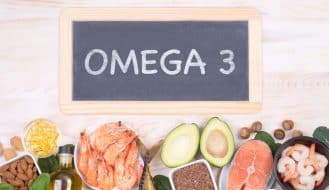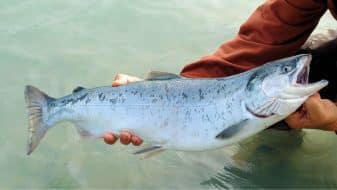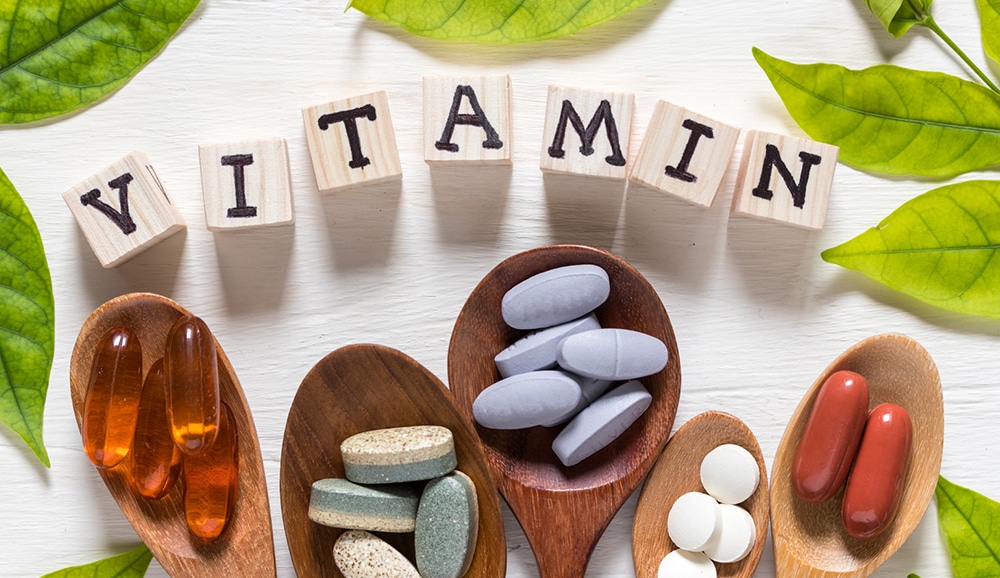6 Vitamins You Need on a Vegetarian Diet
Switching to a vegetarian or plant-based diet can offer numerous health benefits. Diets rich in fruits, vegetables, whole grains, and legumes can support heart health, reduce inflammation, and lower the risk of chronic diseases. They’re also a win for the environment, making them a popular choice for people looking to eat more sustainably.
But while vegetarian diets excel in many areas—like fiber, antioxidants, and polyunsaturated fats—they can fall short on certain nutrients. Studies show that vegetarians and vegans often consume less vitamin B12, vitamin D, iron, zinc, and omega-3 fatty acids (like EPA and DHA) compared to meat-eaters (1). This is especially true for vegans, who avoid all animal products. Even with a well-balanced diet, some nutrients are nearly impossible to get in adequate amounts from plant foods alone.
This doesn’t mean vegetarian diets are unhealthy—far from it! It just means that to thrive on a plant-based diet, you need to plan carefully and fill in the gaps with fortified foods or high-quality supplements. We’ll share six key nutrients every vegetarian should focus on for optimal health.
Ensuring Adequate Vitamin Intake on a Vegetarian Diet
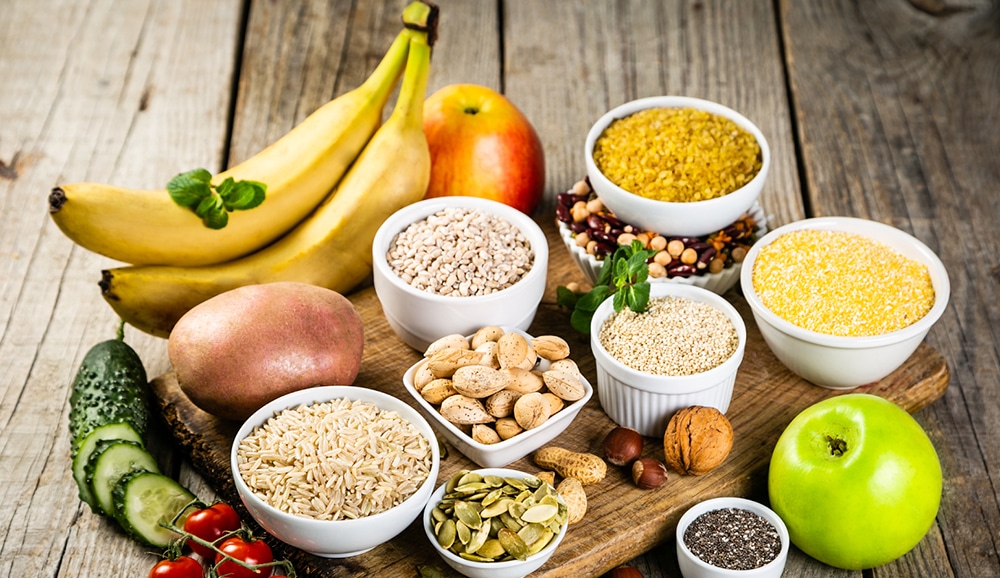
1. Vitamin B12
Vitamin B12 supports nerve health, aids in red blood cell production, and plays a critical role in DNA synthesis. Without adequate B12, you could face symptoms like fatigue, memory issues, and nerve damage (2). This makes it one of the most important vitamins to monitor on a vegetarian diet.
You can find B12 almost exclusively in animal-based foods like meat, fish, eggs, and dairy. For vegetarians, options are limited, but fortified foods can help. Products like nutritional yeast, fortified cereals, and plant-based milks often include added B12. However, relying solely on fortified foods can be insufficient.
Because B12 isn’t naturally present in plants, vegetarians should consider supplementation. High-quality B12 supplements ensure consistent intake, are easy to incorporate into your daily routine, and can prevent deficiency-related health issues.
2. Vitamin D
Vitamin D is crucial for maintaining bone health, supporting your immune system, and regulating mood. It supports plant-based nutrition by enhancing calcium absorption and reducing the risk of osteoporosis and fractures. Beyond skeletal health, it plays a key role in muscle function, nerve signaling, and helping your immune system fight off infections (3).
Natural food sources of vitamin D are scarce, particularly for vegetarians. You can find vitamin D in small amounts in foods like fatty fish, egg yolks, and milk products, but these are not always included in plant-based diets. Some plant-based foods, like fortified plant milks and cereals, are enriched with vitamin D and can help bridge the gap.
Vitamin D from Sunlight
Your body also produces vitamin D when your skin is exposed to sunlight. For most people, sunlight is actually a far greater source of vitamin D than foods.
Getting the right exposure of sunlight isn’t always available though. Factors like the time of year, geographic location, skin pigmentation, age, and sunscreen use can all impact your ability to synthesize vitamin D. For example, people living above 35° North latitude will struggle to produce sufficient vitamin D during the winter months (4).
Because dietary sources and sunlight exposure often fall short, supplementation is a smart option for vegetarians.
3. Iron
Iron is essential for carrying oxygen throughout your body and producing energy. It helps make hemoglobin, the protein in red blood cells that delivers oxygen to tissues, and myoglobin, which stores oxygen in your muscles. Iron is also critical for hormone production and overall growth and development (5).
While vegetarians can get iron from plant-based foods, they primarily contain non-heme iron, which is harder for the body to absorb compared to the heme iron found in animal products.
This makes it important to consume a variety of iron-rich foods, such as:
- Lentils and beans
- Spinach and other dark leafy greens
- Fortified cereals and bread
- Tofu and tempeh
- Pumpkin seeds and sunflower seeds
Boosting Iron Absorption
Because the body absorbs non-heme iron less efficiently, vegetarians may need nearly twice the daily recommended intake of iron compared to those who eat meat (5). Iron supplements are a reliable option for those at risk of deficiency, but use them with caution, as excessive iron can be toxic.
Note: Pairing iron-rich foods with vitamin C can also significantly enhance absorption.
4. EPA and DHA
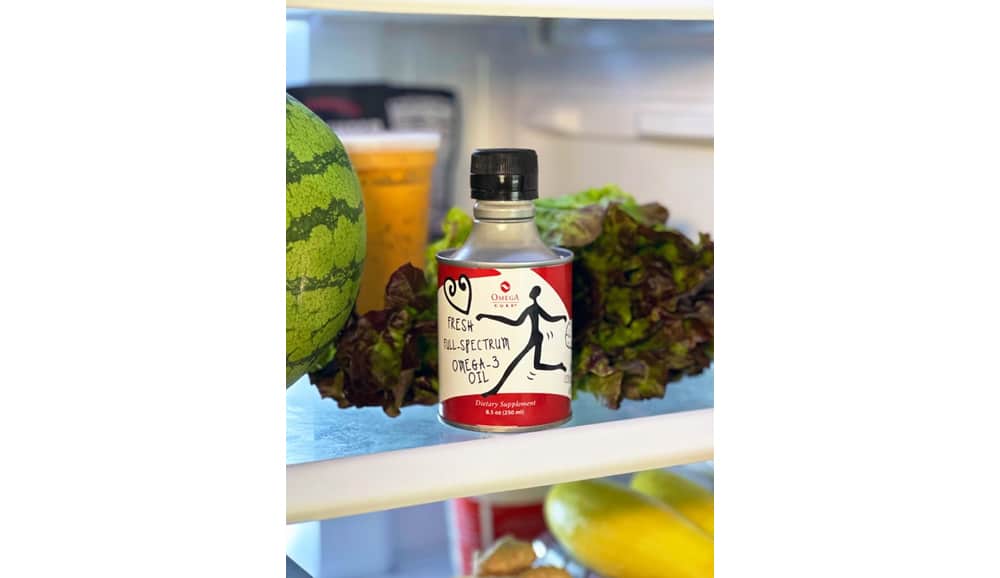
Omega-3 fatty acids, specifically EPA (eicosapentaenoic acid) and DHA (docosahexaenoic acid), are essential for brain health, joint health and much more. These long-chain omega-3s reduce inflammation, support normal cholesterol levels, and promote cognitive function (6). However, they are almost exclusively found in fish and seafood, making it challenging for vegetarians to get enough from their diet.
Plant-based omega-3 sources, such as chia seeds, flaxseeds, and walnuts, provide ALA (alpha-linolenic acid), a short-chain fatty acid. While ALA has some health benefits, your body must convert it into EPA and DHA to unlock its full potential. Unfortunately, this conversion is inefficient, with only a small percentage of ALA turning into EPA and an even smaller amount into DHA (7).
Vegetarian & Vegan-Friendly Options
For those looking for vegan supplements, algal oil offers a reliable source of DHA. Some products also contain EPA.
When choosing an omega-3 supplement, however, it’s important to make sure you are getting an effective dose. For lowering inflammation, studies show at least 2000 mg of EPA/DHA daily is important. For effects on triglyceride levels and blood pressure, studies show even higher doses are necessary. Many supplements on the market fall short, so reading the nutrition label is essential.
Since many people, including vegetarians, struggle to maintain adequate omega-3 levels, it’s worth considering an omega-3 index test to measure how much EPA and DHA you’re getting. With proper supplementation and a focus on quality, you can enjoy the full health benefits of these essential fatty acids.
5. Zinc
Zinc is essential for immune function, wound healing, and the growth and repair of cells throughout your body. It’s also crucial for enzyme activity, helping with processes like DNA synthesis and protein production (8).
While zinc is readily available in plant-based foods, its absorption can be limited in vegetarian diets due to compounds called phytates, which are found in plants and bind to zinc, reducing its bioavailability.
Vegetarians can still get zinc from legumes, nuts, seeds, and whole grains. Foods like chickpeas, lentils, pumpkin seeds, and cashews are great options to include in your meals. To improve absorption, consider soaking, sprouting, or fermenting these foods to reduce their phytate content.
If your vegetarian diet includes dairy, milk and cheese are reliable sources of zinc. They not only contain this important mineral but also offer better bioavailability compared to plant-based sources (9). Fortified cereals can also contribute to your zinc intake and are worth exploring as part of a balanced diet. In cases where dietary intake may fall short, zinc supplements can be a helpful addition.
6. Calcium
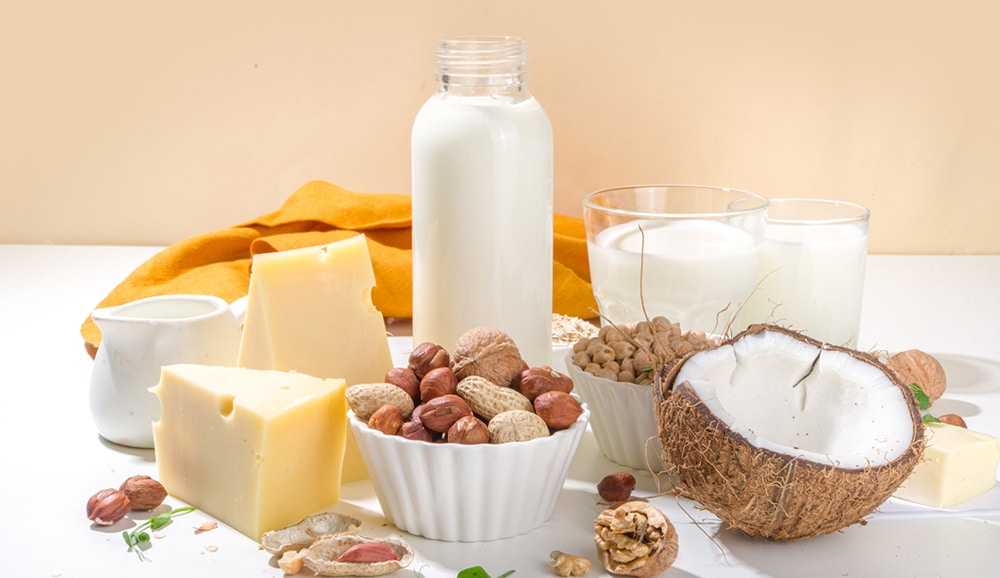
Calcium plays a key role in building and maintaining strong bones and teeth, as well as supporting muscle function, nerve signaling, and blood clotting (10). While dairy products are the go-to source for many, vegetarians can meet their calcium needs through a variety of plant-based calcium options and fortified foods.
Foods like tofu, broccoli, watercress, kale, almonds, and chia seeds are excellent choices. Fortified cereals, plant-based milks, and juices can also provide significant calcium boosts, making them a convenient addition to meals or snacks.
For vegetarians, getting enough calcium is often manageable through diet alone. In fact, studies show that calcium intake for vegetarians is generally on par with omnivores, while vegans tend to have lower levels (11). If your vegan or vegetarian diet doesn’t consistently meet your calcium needs, a calcium supplement may be helpful, but make sure you’re getting only the nutrients you need when supplementing.
A Note on Vegetarian Diet vs. Vegan Diet vs. Pescatarian Diet
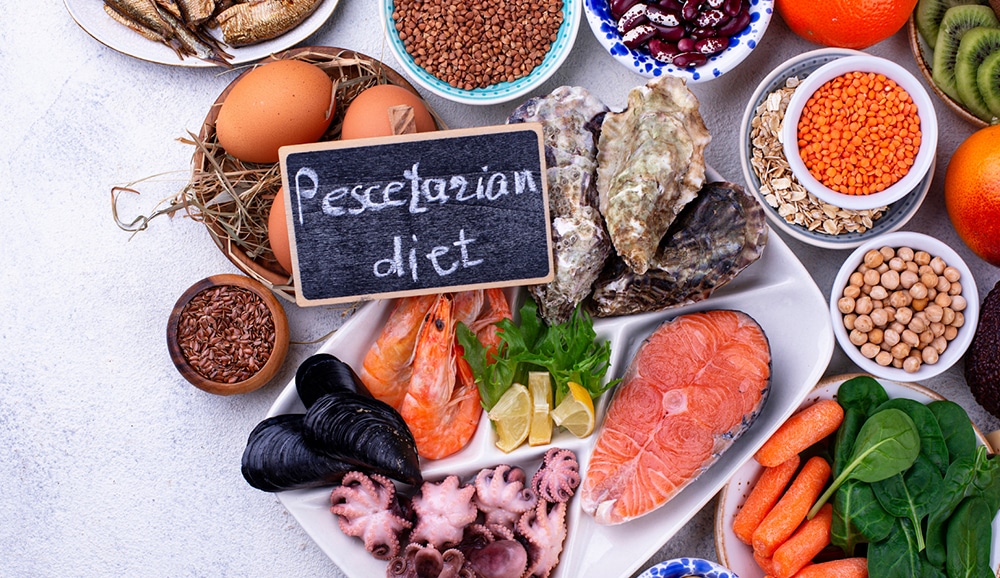
- Vegetarian Diets: Vegetarians typically include eggs and dairy, which are valuable sources of essential nutrients like vitamin B12, calcium, and protein. This flexibility often makes it easier to meet dietary needs compared to a vegan diet.
- Vegan Diets: Vegans avoid all animal products, which increases the risk of nutrient deficiencies, particularly in vitamin B12, iron, calcium, and omega-3 fatty acids. This makes a well-planned diet and supplementation especially important.
- Pescatarian Diets: Pescatarians include fish and seafood, which provide excellent sources of omega-3s (EPA and DHA) and vitamin B12. However, like vegetarians, they should monitor other potential nutrient gaps such as iron and zinc.
Are You A Vegetarian? Vitamin Supplements May Support Your Health!

The good news? With intentional food choices and high-quality dietary supplements, you can bridge these nutrient gaps and optimize your health.
- Neufingerl N, Eilander A. Nutrient Intake and Status in Adults Consuming Plant-Based Diets Compared to Meat-Eaters: A Systematic Review. Nutrients. 2021;14(1):29. doi:https://doi.org/10.3390/nu14010029
- National Institutes of Health. Office of Dietary Supplements – Vitamin B12. Nih.gov. Published February 27, 2024. https://ods.od.nih.gov/factsheets/VitaminB12-HealthProfessional/
- National Institutes of Health. Vitamin D. National Institutes of Health. Published 2017. https://ods.od.nih.gov/factsheets/VitaminD-Consumer/
- Cesari M, Incalzi RA, Zamboni V, Pahor M. Vitamin D hormone: A multitude of actions potentially influencing the physical function decline in older persons. Geriatrics & Gerontology International. 2010;11(2):133-142. doi:https://doi.org/10.1111/j.1447-0594.2010.00668.x
- National Institutes Of Health. Iron. Nih.gov. Published August 17, 2023. https://ods.od.nih.gov/factsheets/Iron-Consumer/
- Omega-3 Supplements: What You Need To Know. NCCIH. Published 2020. https://www.nccih.nih.gov/health/omega3-supplements-what-you-need-to-know
- How Much Fish Oil Per Day Will Produce Results? Omega3 Innovations. Published April 24, 2021. https://omega3innovations.com/blog/how-much-omega-3-fish-oil-daily-will-produce-results/
- Rabinovich D, Smadi Y. Zinc. PubMed. Published 2021. https://www.ncbi.nlm.nih.gov/books/NBK547698/
- Klein L, Dawczynski C, Schwarz M, et al. Selenium, Zinc, and Copper Status of Vegetarians and Vegans in Comparison to Omnivores in the Nutritional Evaluation (NuEva) Study. Nutrients. 2023;15(16):3538. doi:https://doi.org/10.3390/nu15163538
- Cormick G, Belizán JM. Calcium Intake and Health. Nutrients. 2019;11(7):1606. doi:https://doi.org/10.3390/nu11071606
- Bickelmann FV, Leitzmann MF, Keller M, Baurecht H, Jochem C. Calcium intake in vegan and vegetarian diets: A systematic review and Meta-analysis. Critical Reviews in Food Science and Nutrition. 2022;63(31):1-19. doi:https://doi.org/10.1080/10408398.2022.2084027
Popular posts



Related posts
